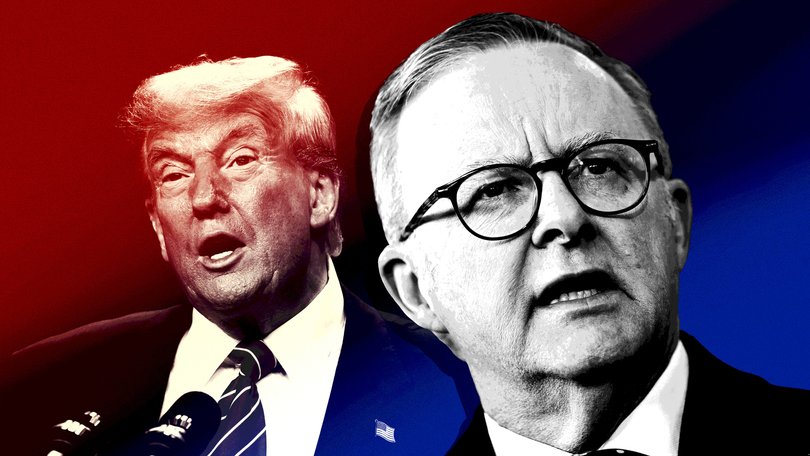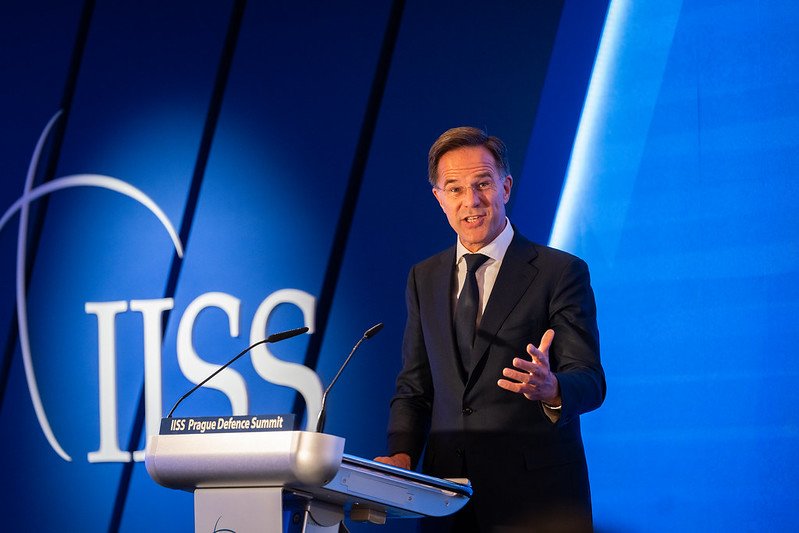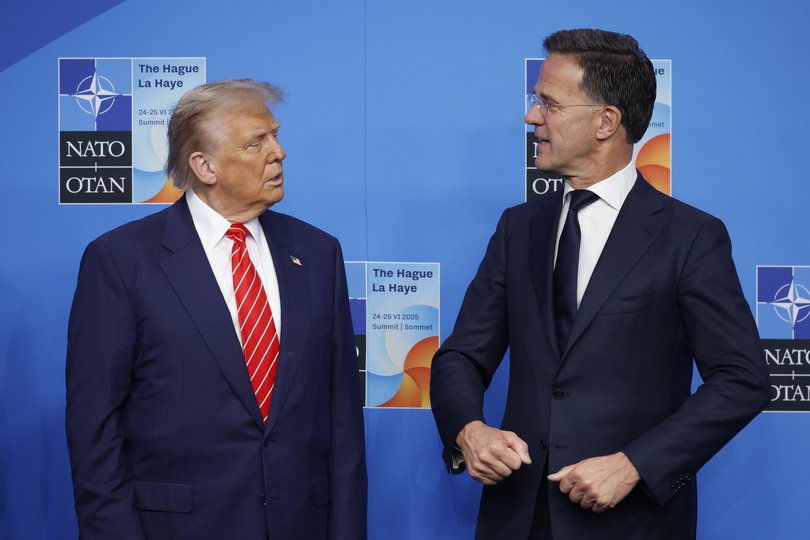Trump wanted Indo-Pacific leaders at NATO summit that Albanese skipped, Mark Rutte reveals
Donald Trump personally insisted that Indo-Pacific nations attend this year’s NATO summit in The Hague because of the combined threat posed by China and Russia, it has been revealed.

NATO boss Mark Rutte has revealed that Donald Trump personally insisted that Indo-Pacific nations attend this year’s summit in The Hague because of the combined threat posed by China and Russia.
In a speech to the International Institute for Strategic Studies’ Prague Defence Summit, Mr Rutte said Xi Jinping’s military parade in Beijing, which was attended by Russian President Vladimir Putin, North Korea’s Kim Jong-un and Prime Minister Anthony Albanese’s Labor Party ally former Victorian Premier Daniel Andrews, showed that China was preparing for long-term confrontation.
The Secretary-General, who was Prime Minister of the Netherlands when flight MH17, which departed from Schiphol Airport, was downed over eastern Ukraine in 2014, said this meant NATO had to work as a team to deter conflict.
Sign up to The Nightly's newsletters.
Get the first look at the digital newspaper, curated daily stories and breaking headlines delivered to your inbox.
By continuing you agree to our Terms and Privacy Policy.Asked by The Nightly whether that cooperation with NATO’s Indo-Pacific partners meant going beyond defence industrial collaboration to a combat role, Mr Rutte said NATO and the Trump Administration viewed the threat posed by Russia in Europe and China in the Indo-Pacific as connected.
“When I am discussing this with the senior policymakers in the US, there is increasingly a realisation that if China would one day decide to attack Taiwan, it will not be limited to that attack,” he said.
“Why would not first Xi Jinping call his junior partner in all of this, one, Vladimir Putin, to also keep us busy here in Europe, in the north, in the northern Atlantic area?
“And the US is absolutely convinced that for their long-term security, a secure Europe, a secure Arctic, but also a secure Atlantic, is crucial.
“So, this is all getting interconnected, and that is why we need that cooperation so closely.
“And that’s why the American President, when I visited him in March, said, ‘Mark, you have to make sure that the Indo-Pacific Four are present at the NATO Summit in The Hague’.”

Mr Albanese spoke to the US President overnight and said afterwards that they “discussed the importance of our shared security interests”.
His office was unable to say if he discussed the AUKUS agreement, which the Pentagon is reviewing.
The head of that review, AUKUS sceptic Elbridge Colby, has insisted Australia lift its defence spending to NATO levels of at least three per cent of GDP.
Mr Albanese is refusing and is sticking to current levels of around 2 per cent. He has been unable to secure a face-to-face meeting with Mr Trump, but briefly considered travelling to the Netherlands for this year’s Hague summit in June.
His Cabinet Minister Amanda Rishworth told Sunrise, that: “Sometimes I don’t get my friends but I’m on the phone, and so … as the Prime Minister’s indicated, they will meet when it’s convenient for both parties.”
Mr Albanese eventually decided to boycott the NATO summit for the second year in a row. Defence Minister Richard Marles attended instead but did not speak one-on-one to anyone in the Trump Administration at the gathering, which collectively agreed to raise defence spending to 3.5 per cent of GDP.
Michael Shoebridge, former deputy of the Australian Signals Directorate and the Defence Intelligence Organisation, said the Prime Minister missed a good opportunity to meet the US leader.
“Donald Trump deeply dislikes multilateral meetings, so going to the NATO meeting showed its importance outweighed his distaste,” Mr Shoebridge said.
“If Trump wanted the IP4 there, Anthony Albanese not going meant he missed his best chance for a side meeting with Trump - and let the US and NATO know he’s not serious about security.
“If he goes to a future gathering, he’d better bring a new military support package for Ukraine, hopefully with 150 Bushmasters, and he’ll need to spend more on defence: two reasons he’s unlikely to turn up.”
A key concern with the United States’ ability to fulfil AUKUS, and in particular the transfer of nuclear-powered submarines to Australia in the early 2030s, is that the US Navy is not building its own boats fast enough.
Mr Rutte said this was a primary concern of NATO’s.
“When it comes to shipbuilding and our navy, and particularly the US Navy, I’m really worried because this China has now more ships sailing than the US, and shipbuilding in the US is not at a rate that they can anywhere catch up on what China is doing at the moment,” he said.

NATO has a partnership with four Indo-Pacific countries, including Australia, South Korea, Japan and New Zealand, but just the latter’s leader, Prime Minister Christopher Luxon decided to attend this year’s summit in The Hague.
Mr Rutte said in his prepared speech that China, Russia, Iran and North Korea posed threats individually but also as a result of their increased collaboration, which has been forged throughout Russia’s illegal invasion of Ukraine.
“Only look at the pictures from Beijing the last couple of days and the hand-hold,” he said, referring to Indian Prime Minister Narendra Modi holding hands with President Putin.
It is not uncommon for Indian men to hold hands with other men as a sign of friendship and trust.
“They are preparing for long-term confrontation, and as I said earlier, the challenges we face are lasting, so we must be prepared.” Mr Rutte said.
“And what’s more, it’s not only NATO, but NATO with our partners — the EU, Ukraine and countries around the world.
“Not least in the Indo-Pacific — Australia, Japan, New Zealand and the Republic of Korea.”
But asked if that would extend to a joint combat role, Mr Rutte ruled out extending the alliance’s Article 5 collective defence clause relating to the Indo-Pacific.
“I don’t think we will extend Article Five to the Indo-Pacific,” he said.
“I don’t think that will happen.”

